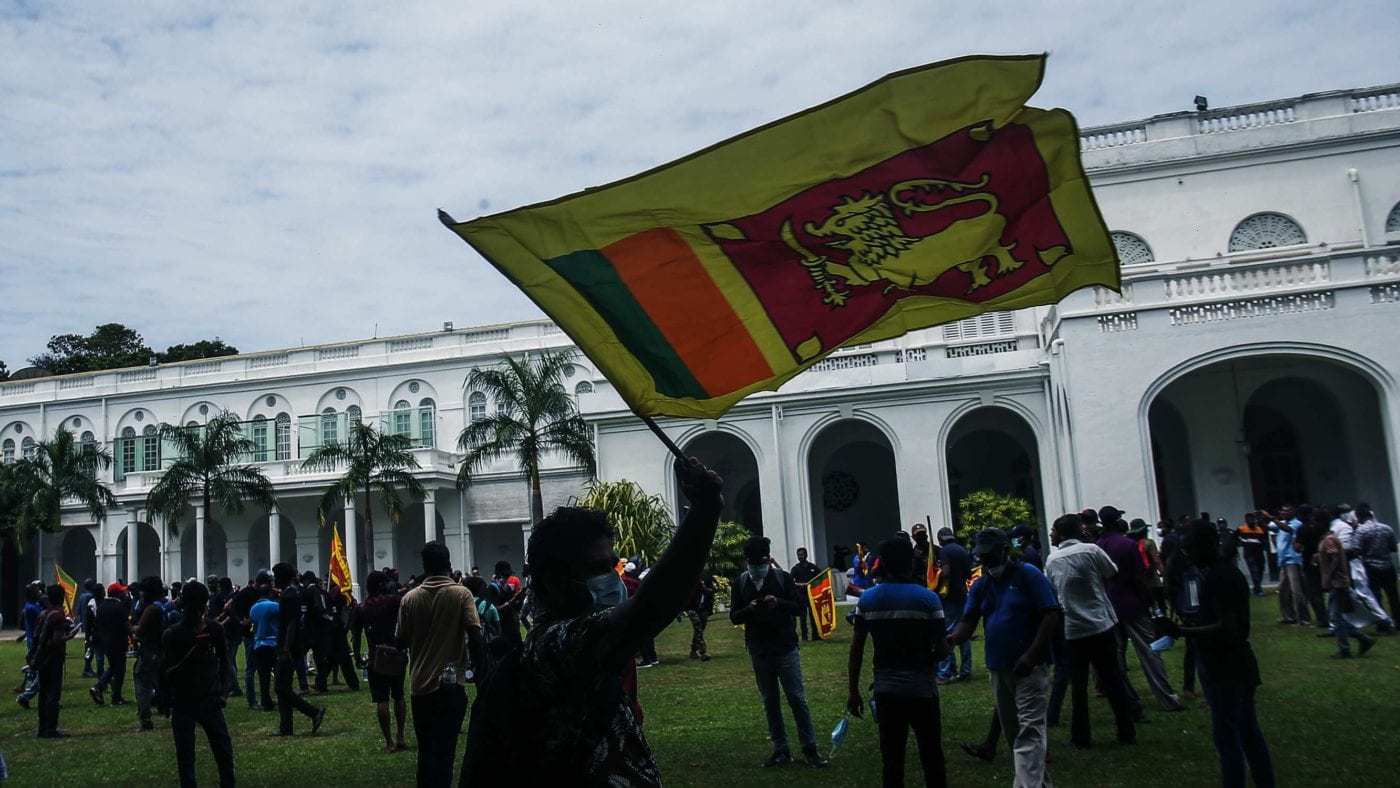Sri Lanka’s economy is in a mess. Although it is encouraging that the largely peaceful protests have forced the President and Prime Minister to resign, the country will still face huge challenges and the people will continue to suffer.
The problems facing Sri Lanka are largely the result of bad economic and political decisions. What has happened is dreadful, but it does offer lessons for both the UK and less economically developed countries.
Perhaps the most disastrous policy decision of the Sri Lankan government was to ban the import of synthetic fertilisers and pesticides in an attempt to shift the entire country to organic agriculture. The result was a dramatic decrease in yields for crops such as rice and tea, on which the Sri Lankan economy heavily depends.
This should serve as a lesson to emerging economies: innovation and experimentation is great, but don’t go against science and tried-and-tested methods – especially when it comes to producing things on which your country’s livelihood depends.
The Sri Lankan government also made two fundamental mistakes in that it pegged its exchange rate and it borrowed a lot of money. It is worth briefly discussing why these were bad ideas for Sri Lanka.
Sri Lanka pegged the rupee against the dollar in order to maintain its value. Unfortunately, capital flight led to the central bank running low on foreign reserves and so the value of the rupee crashed, causing a currency crisis.
Now, an exchange rate peg can sometimes bring about good things such as financial stability, but if countries set it too high then they are storing up trouble. A sudden crash means that policy makers have practically no time to respond and so a currency crisis ensues.
The second mistake was that it borrowed far too much money in foreign currencies. Again, this can be a positive thing if done in a sensible way as it allows a country to pay for the imports it needs, but it can obviously be very risky as the situation in Sri Lanka demonstrates.
We also need to look at who Sri Lanka borrowed money from. It entered into a number of loan agreements with China as part of its Belt and Road Initiative and funded a number of infrastructure projects such as ports. Unfortunately some of these projects didn’t work, meaning the Sri Lanka government was forced to hand over controlling stakes in the infrastructure projects to Beijing.
There have been other examples of this, where China has offered developing nations what appear to be very generous loans, only for the projects to fail and the government being unable to pay back the Chinese government. As a result, the CCP has more leverage over the governments of these countries.
This should obviously serve as a lesson to developing countries to be careful who you accept money from. It should also be a wake up call to the UK and the next government. The CCP is an evil regime which imprisons and tortures its own people and is successfully increasing its influence in Africa and Asia. Worse still, its debt-trap diplomacy reduces the influence of the UK and our allies is waning in these areas.
This should alarm the UK during normal times, but given that Putin is currently waging an illegal war in Europe it is even more concerning. The UK and the West need all the friends they can get, including among developing nations in order to put increased pressure on Russia and counter the growing influence of the CCP.
This all shows us the importance of international development. Although cutting the international development budget was popular – especially among Conservative voters – I believe it was a mistake. The UK should be helping developing countries, in order to extend our influence and promote our values.
Of course, it is not just about UK influence (although it is certainly a good thing for Global Britain). It can also help to bring stability to volatile regions. This helps to protect the UK from terrorism and hostile states while also increasing international trade.
While there have been problems with how the UK’s aid budget is spent in particular places, investing in international development is still an overwhelmingly positive thing. As the crisis in Sri Lanka shows, it is people who suffer when governments fail. Aid spending means that the UK can provide help and support for some of the poorest people on the planet, helping to lift them out of poverty, allowing them to get an education, and having a chance of a longer, healthier, and happier life.
The next prime minister should commit to renewing our relationship with international partners and bodies such as the IMF and World Bank, both to tackle poverty and, in so doing, promote stability.
That should also mean increasing the international development budget once more. It might not be the most popular political move – and it is of course important to ensure that taxpayers’ money is spent wisely – but it is the right thing to do. It will help realise the ambition of Global Britain by increasing our influence, help protect the UK from dangerous threats, and, of course, help some of the world’s most vulnerable people.
Click here to subscribe to our daily briefing – the best pieces from CapX and across the web.
CapX depends on the generosity of its readers. If you value what we do, please consider making a donation.


